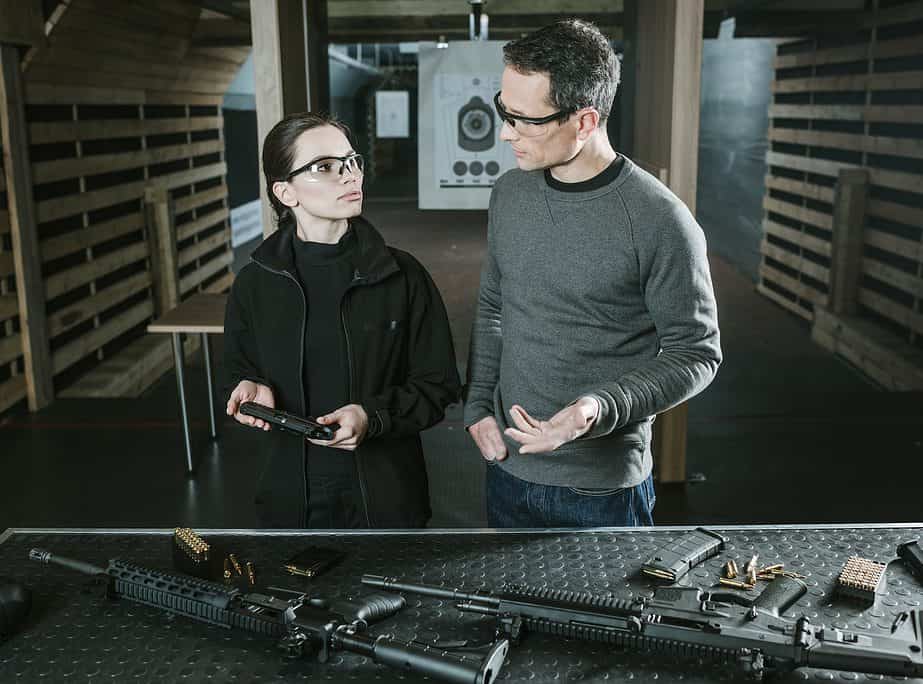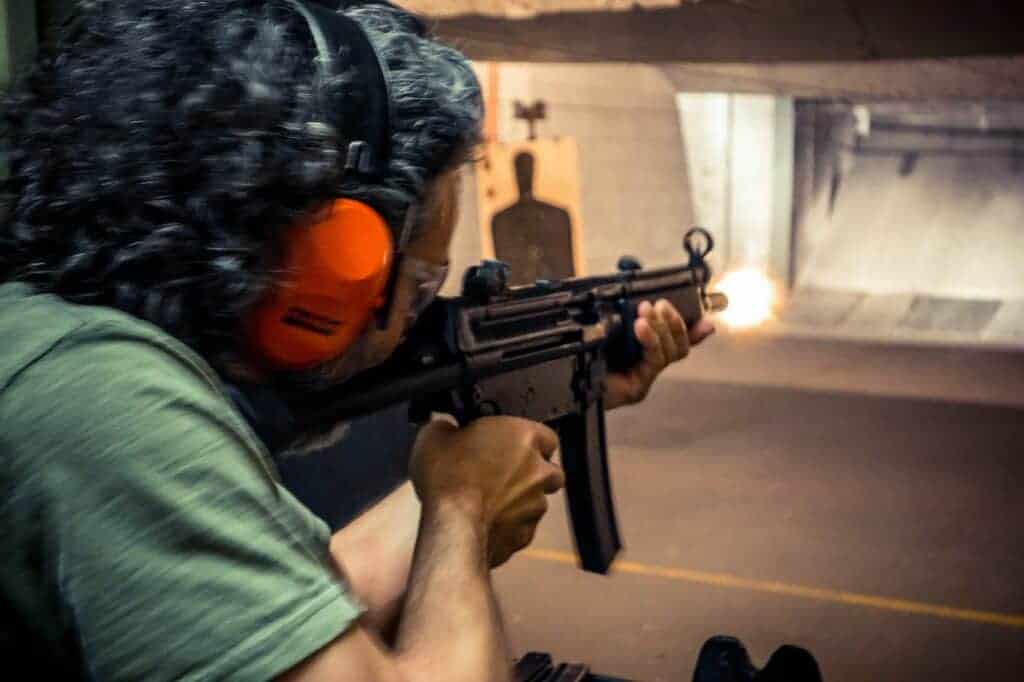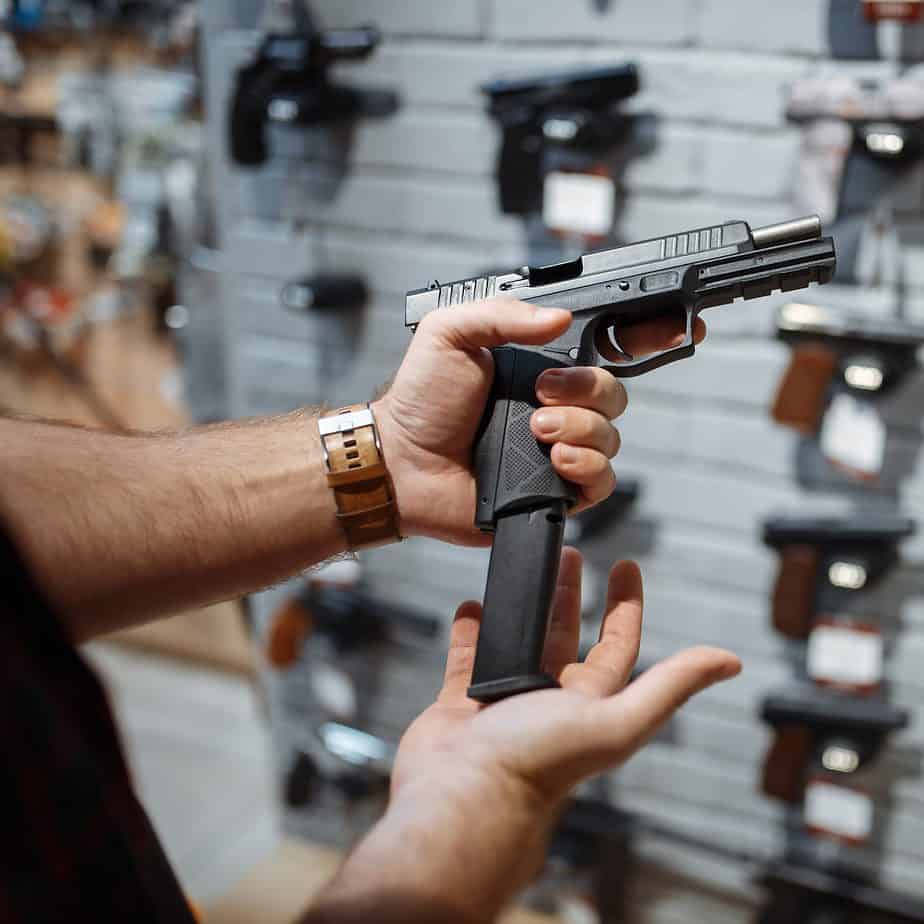Table of Contents
Introduction
When it comes to selecting a firearm for self-defense, it’s important to approach the decision with care and consideration. Owning and carrying a firearm can be a serious responsibility, and it’s essential to choose a weapon that is suitable for your needs and abilities. There are many factors to consider when selecting a firearm for self-defense, including your personal experience with firearms, the purpose and context in which the firearm will be used, and any physical limitations or preferences you may have. In this blog post, we’ll explore these and other considerations in more detail, and provide some tips and guidance on how to make an informed decision when selecting a firearm for self-defense. So, let’s get started!
Explain the importance of careful consideration and responsible firearm ownership
Careful consideration and responsible firearm ownership are essential when it comes to selecting a firearm for self-defense. Here are a few reasons why:
1. Safety: Owning and carrying a firearm carries with it the potential for serious consequences, including injury or death. It’s essential to choose a firearm that you are comfortable and confident using, and to familiarize yourself with proper handling and safety procedures.
2. Legal considerations: The laws and regulations surrounding firearm ownership and use vary widely from one location to another. It’s important to familiarize yourself with the laws in your area, and to choose a firearm that is legal to own and carry.
3. Practicality: Different firearms are better suited to different purposes and contexts. For example, a shotgun may be a good choice for home defense, but may not be practical for concealed carry. It’s important to choose a firearm that is suitable for your needs and the context in which it will be used.
In short, careful consideration and responsible firearm ownership are essential to ensure the safety and legality of owning and carrying a firearm, as well as to ensure that you choose a weapon that is suitable for your needs and abilities.
Consider your personal experience with firearms by starting with formal firearm training
If you are new to firearms, it’s a good idea to start with formal firearm training before selecting a firearm for self-defense. There are many reputable organizations and instructors that offer firearm training courses, ranging from basic safety and handling courses to more advanced courses on self-defense and tactical shooting.
Formal firearm training can provide you with the knowledge and skills you need to safely and effectively use a firearm for self-defense. It can also help you gain confidence and familiarity with firearms, which can be helpful when it comes time to select a firearm that is right for you.

In addition to formal training, it’s also a good idea to seek out guidance and recommendations from trusted sources, such as friends or family members who are experienced with firearms, or firearms instructors or dealers. These individuals can provide valuable insights and guidance as you consider different options and make a decision.
Ultimately, the most important thing is to choose a firearm that you are comfortable and confident using, and to familiarize yourself with the proper handling and safety procedures for any firearm you own or use. Formal training and guidance from trusted sources can help you do this.
Think about the purpose and context of the firearm (e.g. home defense, concealed carry, etc.)
When selecting a firearm for self-defense, it’s important to think about the purpose and context in which the firearm will be used. Different firearms are better suited to different purposes and contexts, and considering these factors can help you choose a firearm that is well-suited to your needs.
For example, if you are primarily interested in using a firearm for home defense, you may want to consider a shotgun or a handgun with a longer barrel and greater stopping power. These types of firearms are well-suited to close-range defensive situations, and can provide a higher level of stopping power than smaller, lighter firearms.
On the other hand, if you are interested in using a firearm for concealed carry, you may want to consider a smaller, lighter handgun that is easier to carry and conceal. These types of firearms are better suited to being carried on a daily basis, and can be easier to carry and conceal than larger firearms.
In addition to the purpose and context of the firearm, it’s also important to consider the laws and regulations surrounding firearm ownership and use in your location. Some areas may have specific laws or regulations governing the types of firearms that can be owned or carried, and it’s important to familiarize yourself with these laws and ensure that you choose a firearm that is legal to own and carry in your area.
By considering the purpose and context in which the firearm will be used, as well as the laws and regulations governing firearm ownership and use in your location, you can narrow down your options and choose a firearm that is well-suited to your needs and the context in which it will be used.
Try before you buy
Yes, it is a good idea to try out different firearms before making a purchase, if possible. This will allow you to get a feel for how the firearm handles and performs, and can help you determine which one is the best fit for your needs and preferences.

Shooting ranges often have rental guns available for you to try out, or you may be able to borrow a firearm from a knowledgeable friend or instructor. This will give you the opportunity to experience shooting different types of firearms and help you make a more informed decision.
It is also important to consider the cost and availability of ammunition for different firearms. Some types of ammunition can be more expensive or harder to find than others, so it is worth taking this into account when making your decision.
Finally, it is always a good idea to seek the advice of a firearms professional when making a purchase. They can provide you with valuable guidance and help you choose a firearm that is appropriate for your needs.
Practice and maintain your firearm
It is important to practice regularly with your firearm to improve your skills and confidence. This can help you feel more comfortable and prepared in the event that you need to use your firearm for self-defense.
There are a few different ways you can practice with your firearm:
1. Dry fire practice: This involves practicing your shooting technique and handling skills without any live ammunition. This can be done at home or at a range that allows dry fire practice.
2. Live fire practice: This involves shooting live rounds at a range or other approved location. It is important to follow all safety protocols when practicing with live ammunition.
3. Simulation training: Some training facilities or instructors offer simulation training, which allows you to practice self-defense scenarios using simulated firearms.
It is also important to follow proper cleaning and maintenance procedures for your firearm to ensure its longevity and reliability. This may include regular cleaning and lubrication, as well as periodic inspections to identify and address any potential issues.
Finally, make sure to familiarize yourself with the proper handling and use of your firearm, including how to safely load, unload, and store it. This will help you feel more comfortable and confident with your firearm.
Conclusion
Owning a firearm for self-defense is a serious responsibility that requires careful consideration and responsible ownership. It is important to familiarize yourself with the laws and regulations regarding firearms in your jurisdiction, and to choose a firearm that is appropriate for your needs and preferences.
It is also important to seek out training and guidance from knowledgeable sources, such as firearms instructors or professionals, to ensure that you are familiar with how to safely handle and use your firearm. Practicing regularly and following proper maintenance procedures will help you feel more confident and prepared in the event that you need to use your firearm for self-defense.
Finally, it is important to recognize that owning a firearm is not a substitute for other personal safety measures, such as avoiding dangerous situations, being aware of your surroundings, and seeking help when needed. A firearm should only be used as a last resort in a life-threatening situation.


